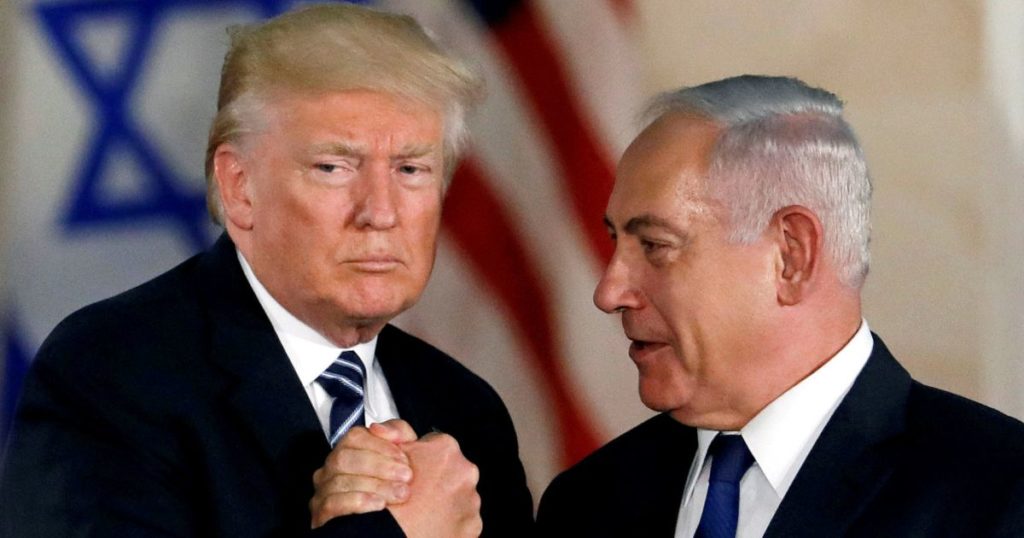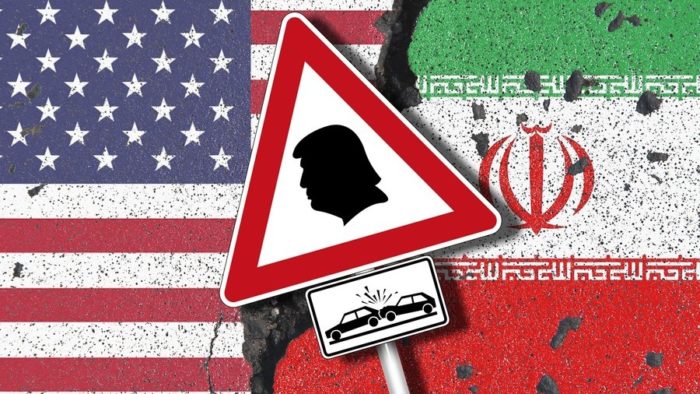Iran’s decision to increase its stock of low enriched uranium from 174.1 kilograms on 20 May to beyond the JCPOA’s agreed limit of 300 kilograms on 27 June 2019, is not a “violation” or “breach” of the nuclear deal, as has been described. Neither is Iran’s suspending the implementation of some of its commitments under the JCPOA, on 7 July, that is, at the end of its 60 day ultimatum to the European troika to observe their part of the deal and produce practical measures to counter the calamitous effects of US sanctions on the lives of Iranians. It is Iran’s legitimate and necessary response to a contract already left by the US and breached by its European allies.
Despite continued promises, the Europeans signatories have lacked both willingness and sovereignty to secure mechanisms for trade with Iran. To expect Iran to continue adhering to its commitments unilaterally with the population strangulated under sanctions and tortured by threats of war, is the product of a colonial mindset; disingenuous, cruel, outrageous and delusional. This legitimate stance is clearly acknowledged by Nathalie Tocci, advisor to the EU’s Representative for Foreign Affairs and Security, Federica Mogherini:
“if I were Iran I would probably not stick with the JCPOA because indeed, as I said, the social contract can only hold if both sides live up to the bargain”.
Spurred by Iran’s decision, on 27 June the Europeans announced that their mechanism for trade labelled Instex which had been promised in February after months of empty talks since US’s withdrawal from the JCPOA, will now become operational in a matter of days. However, INSTEX is limited in scope and tied to the Financial Action Task Force (FTAF), the accession to which requires Iran adopting the Terrorist Financing Convention (CFT) and Palermo Convention. These would seriously compromise Iran’s sovereignty and rather than combatting sanctions, become an instrument of pressure on Iran. It is important to see the preconditions for Instex and how it would work in practice.
After years of unsubstantiated accusations and fabrications against Iran’s peaceful civilian nuclear programme, the imposition of inhumane sanctions and the chronic shadow of war over the Iranian population, on 14th July 2015, two years of intense negotiations resulted in the Joint Comprehensive Plan of Action (JCPOA) or the Nuclear Deal, between the Security Council members plus Germany (P5+1) and Iran. The nuclear deal which was adopted unanimously in the Security Council Resolution 2231 on 20th July 2015, severely curbed Iran’s nuclear programme and placed it under strict monitoring within an agreed time frame. In return, the Security Council Resolutions and sanctions on Iran – secured through US manipulation and threats of military action – were removed and Iran’s file was normalised and returned to the jurisdiction of the International Atomic Energy Agency (IAEA). Iran’s right to uranium enrichment was recognised, and US/EU comprehensive sanctions on Iran were to be removed.
SEE ALSO: Trump Defies the Hawks, Backs Off Attacking Iran – But for How Long?
The nuclear deal lifted the shadow of war, and raised hopes for economic, social and democratic progress for Iranian people. However, despite all the IAEA verification and monitoring reports of the past 4 years, consistently confirming Iran’s faithful adherence to its obligations under the nuclear deal, from the beginning the US refused to adhere to its part of the deal in the removal of all the sanctions, and directly or indirectly through whipping up a climate of uncertainty and fear of punitive measures dissuaded its European allies from fully meeting their commitments, particularly in the removal of the banking sanctions and the operation of SWIFT for international banking transactions.
Trump’s withdrawal from the nuclear deal on 8th May 2018 and the imposition of wide-ranging sanctions intending “to bring Iran’s oil exports to zero” depriving the country of “its principal source of revenue” has been an explicit declaration of war on a population of 80 million, inflicting intense suffering, pauperising and wiping out the middle class, destroying the country’s infrastructure, civil society and democratic aspirations. On the occasion of the recent unprecedented floods in Iran in April of this year which left thousands homeless, without access to food and clean water, the US sanctions blocked the accounts of Iran’s Red Crescent preventing humanitarian aid being sent to Iran, an egregious crime against humanity, to which the Europeans helplessly bowed down. Where does the violation of Iranians’ human rights to jobs, homes, medicine, affordable food, and to live without the terror of war fit in with Europe’s deafening advocacy of “human rights” for which it wages wars of aggression, as in Libya and Syria?
Sanctions rather than military intervention is the option of choice for President Trump and Pentagon analysts. The idea being that given enough time and assisted by propaganda, sanctions would create large scale discontent, would weaken Iran’s defensive capabilities and human resources, and ripen it for regime change or make it an easier target for future military attack.
Iran’s planned suspension of part of its commitment under the JCPOA, such as increasing the level of enrichment and increasing its stock of heavy water, are not violations of its NPT obligations and a path to nuclear weaponisation. Possession and stockpile of nuclear weapons and all weapons of mass destruction have been forbidden by repeated religious FATWAs for decades including the Fatwa from Iran’s Supreme Leader Ayatollah Khamenei. The US and Israel’s fabricated accusations of weaponization against Iran come in the context of Israel’s possession of hundreds of nuclear warheads targeting Iran. The US has continued its refusal to ratify the nuclear Test Ban Treaty and its recent announcement that limited wars fought with “low yield nuclear weapons”, are winnable, is a clear threat against Iran, described by Moscow as “blackmailing the countries, who oppose American dictates”.
Arms manufacturers play a crucial role in creating climates of threat and igniting wars. This was exemplified on 21 June, the day after Iran downed the US spy drone over Iranian territory. James Winnefeld, a Raytheon board member and retired Navy admiral, masquerading as CBS’s news analyst heavily criticised President Trump for calling off retaliatory strikes against Iran, insisting that the US will “lose a lot of credibility”.
US’s demand to “drag” Iran into ‘talks’ with a gun to its head and under the pressure of sanctions is clearly an aggressive non-starter. US’s demands, outlined in Pompeo’s “twelve pre-conditions” for talks, are nothing short of Iran signing its own death warrant, that is, signing the conditions for its surrender and invitation for military attack. Indeed, US’s unilateral withdrawal from the JCPOA and its demands and behaviour have helped unify Iranians and cemented a deep mistrust towards the US.
The Trump administration tore up an international agreement, supported by the UN Security Council, with impunity, holding a nation of 80 million at gunpoint. Europeans have proven compliant and cooperative with the US’s lawlessness. What is there to guarantee the US’s adherence to any other agreement that could conceivably be reached? International law and treaties do not operate in a vacuum and outside of the context of the balance of power. The JCPOA, negotiated over two years, which involves domestically contentious concessions from Iran, addresses all concerns about any potential weaponisation risks by Iran. It is not open to re-negotiation.

The US’s real concern however is Iran’s conventional missile programme which is proving increasingly vital for Iran’s defence and a powerful deterrent against regional adventurism. Iran’s leading role in the Axis of Resistance, its success in defeating ISIS in Iraq and Syria and foiling the US/Israeli/Saudi regime change agenda in Syria, with Iran as the next target, is the focus of the US concerns and demands. Iran’s regional links, and the respect and loyalty it commands at popular level, has provided it with strategic depth and influence and a powerful defence for Iran.
This is viewed as a serious obstacle to US/Israeli hegemonic agenda in the region and a challenge to Saudi/Emirati sectarian regional ambitions. This is the context in which the accusations of “Iran’s sponsorship of terrorism” needs to be viewed. Not ISIS or many thousands of Saudi/NATO recruited and sponsored, head-chopping, heart-eating, rapist sectarian ‘jihadists’ from 80 countries around the world, who unleashed a bloodbath in Syria and Iraq, who routinely kill and maim citizens not only across the Middle East but also in Western heartlands. No, many of these are the West’s “freedom fighters”, just as the Neo-Nazi thugs who were supported to take power in Ukraine’s “Maidan Revolution”. The bothersome “terrorists” are the Palestinian resistance, Hezbollah and the popular forces of the Axis of Resistance pushing against US-led agenda and its hand-reared terrorists. Remarkably, a confidential report to the US Congress on 18th June refuted Pompeo’s public claim that Iran “had hosted al Qaeda, they have permitted al Qaeda to transit their country … There is no doubt there is a connection between the Islamic Republic of Iran and Al Qaea. Period, full stop”. The report confirmed that there is no evidence of Al-Qaeda cooperation with Iranian government.
Trump might be reluctant to engage in a costly military confrontation. The assessment of Pentagon, military analysts and economists might be that such a war would seriously damage world economy and could escalate into a global war. However pressure from war lobbies and the hawks in Trump’s cabinet and the huge US military build-up in the Persian Gulf make igniting war through false flag operations and miscalculation a real possibility. The designation of Iran’s Revolutionary Guards as a terrorist organisation has closed vital channels of communication between the US and Iran and increased the risk of miscalculations.
The tanker attacks in the Persian Gulf which were immediately blamed on Iran without any credible evidence, and the trigger happy reaction of the US to attack Iran over the shooting down of the US spy done over Iranian territory (an attack which was allegedly called off by Trump 10 minutes before the operation, and to the huge dismay of the hawks), are clear indications of the incendiary circumstances ripe for false flag operations and which could very quickly slide into military confrontation. The idea put forward by Trump that war with Iran would be short-lived is another dangerously erroneous assumption which could lead to miscalculation and a catastrophic war.
Whatever, the evidence and counter evidence, with Trump’s policy of “Maximum Pressure on Iran’, all responsibility for any attack or confrontation squarely falls on the US. As Daniel Larison says very clearly in American Conservative (June 18, 2019),
“It is the U.S. that has been ramping up pressure and inflicting collective punishment on all Iranians. It is the U.S. that reneged on the JCPOA, and it is the U.S. that has issued unrealistic ultimatums effectively demanding Iranian capitulation. After strangling and kicking Iran for more than a year, the administration tries to pretend that Iran is engaged in “aggression” when it pushes back against relentless economic warfare and escalating threats. “Maximum pressure” is what has brought us to the verge of war, and Trump is the proud owner of that policy. If we want to avoid further escalation, the U.S. needs to back off on its pressure campaign at a minimum.”
The possibility for an unstoppable regional and potentially global war, is real, and it is only a matter of time for a spark to ignite a military confrontation. It is crucial for the Europeans, if they have any concern for the security of their own populations, to, instead of pressuring Iran to effectively ‘lie down and die’ under sanctions, actively pressure the US to remove the sanctions on Iran and return to the JCPOA.
This article was originally published at Global Research.
READ MORE IRAN NEWS AT: 21st Century Wire Iran Files
SUPPORT OUR MEDIA PLATFORM – BECOME A MEMBER @21WIRE.TV
















